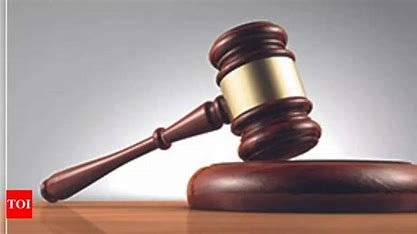In a recent court ruling, Akhilesh Pati Tripathi, an MLA from the Aam Aadmi Party (AAP), has been sentenced to “till rising of the court” for causing harm to a student in 2020. The term “till rising of the court” refers to a nominal sentence where the guilty individual is not allowed to leave the court until the proceedings are concluded.
Special Judge Geetanjli Goel, who presided over the case, deemed that Tripathi was “not a threat to society” and had “deep roots in the society.” As part of the sentence, the judge also imposed a fine of Rs 30,000 on Tripathi. Out of this amount, Rs 6,500 would cover the cost of proceedings incurred by the prosecution, while the remaining sum would be awarded to the victim, Sanjeev Kumar, as compensation.
The court’s decision came after Tripathi was convicted on March 25 under Section 323 of the Indian Penal Code (IPC) for voluntarily causing hurt. The maximum punishment for this offense is one year of imprisonment. However, Tripathi was acquitted of charges under the Scheduled Castes/Scheduled Tribes (Prevention of Atrocities) Act, as the incident was deemed to have stemmed from political rivalry, particularly due to the impending elections the following day.
According to the prosecution, the incident took place in February 2020 when a student, belonging to the Scheduled Caste, lodged a complaint alleging that Tripathi physically assaulted him at Jhandewalan Chowk, Lal Bagh while he was on his way home. The complainant also accused Tripathi of using casteist slurs against him.
The court’s decision to award a nominal sentence reflects its assessment of Tripathi’s social standing and potential threat to society. While the conviction acknowledges the guilt of the accused, the court considered various factors and determined that a sentence of “till rising of the court” would meet the ends of justice in this particular case.
This ruling serves as a reminder that elected officials are not above the law and are subject to legal consequences for their actions. It also highlights the importance of upholding justice and ensuring that individuals responsible for causing harm are held accountable, regardless of their social or political standing.

